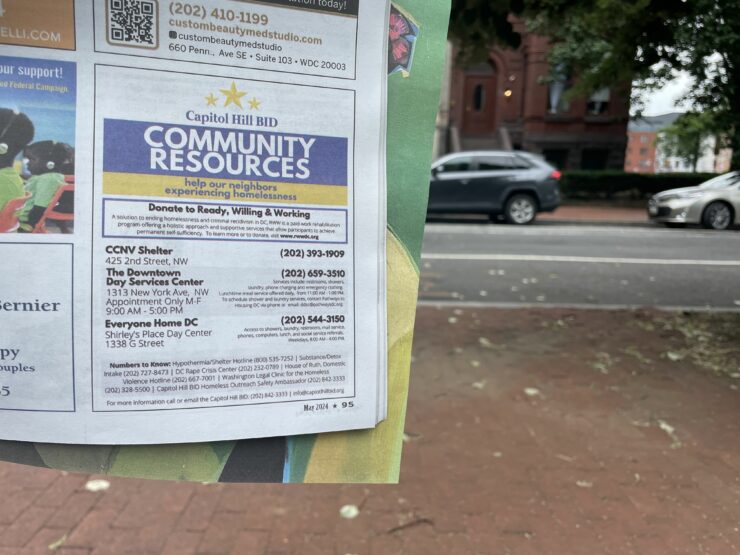At 6 a.m. each morning, a blue trash can with three gold stars rolls along the streets of Capitol Hill.
Residents and employees said the neighborhood, located in the Southeast quadrant of the District, has undergone a rebirth over the past several years due to changes that include the Capitol Hill Business Improvement District’s cleanup efforts and an influx of new, young families.
Traversing parks, sidewalks and storefronts, the Capitol Hill BID Clean Team picks up trash in the area for eight hours, five days a week, and contributes to a “makeover” that is similar to other beautification projects in the District.
Jeffrey Sledge, a member of the Capitol BID Clean Team, said the workers are also responsible for powerwashing graffiti – which may reemerge after four to five days – or removing posters after their designated running time.
BIDs contribute to the maintenance and development of other D.C. neighborhoods like Adams Morgan, Georgetown and Golden Triangle.
The Capitol Hill BID also provides a Ready, Willing & Working program to employ unhoused and incarcerated individuals in addition to their promotion of local businesses. Capitol Hill BID did not immediately return a request for comment.
The RWW program provides paid jobs, a Section 401(k) and health insurance for participants who are seeking to escape homelessness and “criminal recidivism.” About 70% of RWW participants stay drug-free, employed and have their own housing after three years of their program entrance, according to the program’s website.
Capitol Hill BID provides individuals a means to achieve their financial needs, Sledge said. As a member of the Clean Team for 16 years, he said the program reformed his personal values.
“I have enough stability to know right from wrong,” Sledge said.

Throughout Capitol Hill BID’s two decades of service to the neighborhood, the area has expanded its physical boundaries and now boasts over 130 businesses. The District population has increased by 1.2% each year from 2021-23, according to U.S. Census data.
“This area is one of the last areas growing,” Capitol Hill resident Bilen Estephanous said. Gentrification pulled new, young families into the neighborhood, she said, and while Capitol Hill is experiencing a “makeover” due to the high income of its new residents, other neighborhoods in the District are not as lucky.
Most BIDs belong to neighborhoods in the Northwest quadrant, which had the highest concentration of wealth in the District in 2022, according to the D.C. government. But despite the nonprofits’ dedication toward supporting their local businesses, the Capitol Hill neighborhood’s cost of living is too costly for some employees to reside there.
The average Capitol Hill home costs roughly $931,534, but the average U.S. home comes in at roughly a third of the cost at $358,734, according to Zillow.

Kat Raube, the senior garden lead at Foliage by Frager’s in Capitol Hill, said the costs of plants that the business sells like the lantana plant have increased since the onset of the pandemic, alongside food and housing costs for District residents.
“I work in retail. I can’t afford to live in Capitol Hill,” she said. In addition to the hiked prices, customers’ expectations of retail workers have increased as well. She said the pandemic sparked a “dynamic change” for treatment of employees in the neighborhood.
Raube said the push toward online shopping during the pandemic made consumers more attuned to a lack of human interaction, which has decreased their respect for retail workers.
“Customers treat you like a computer website,” she said.















Add comment